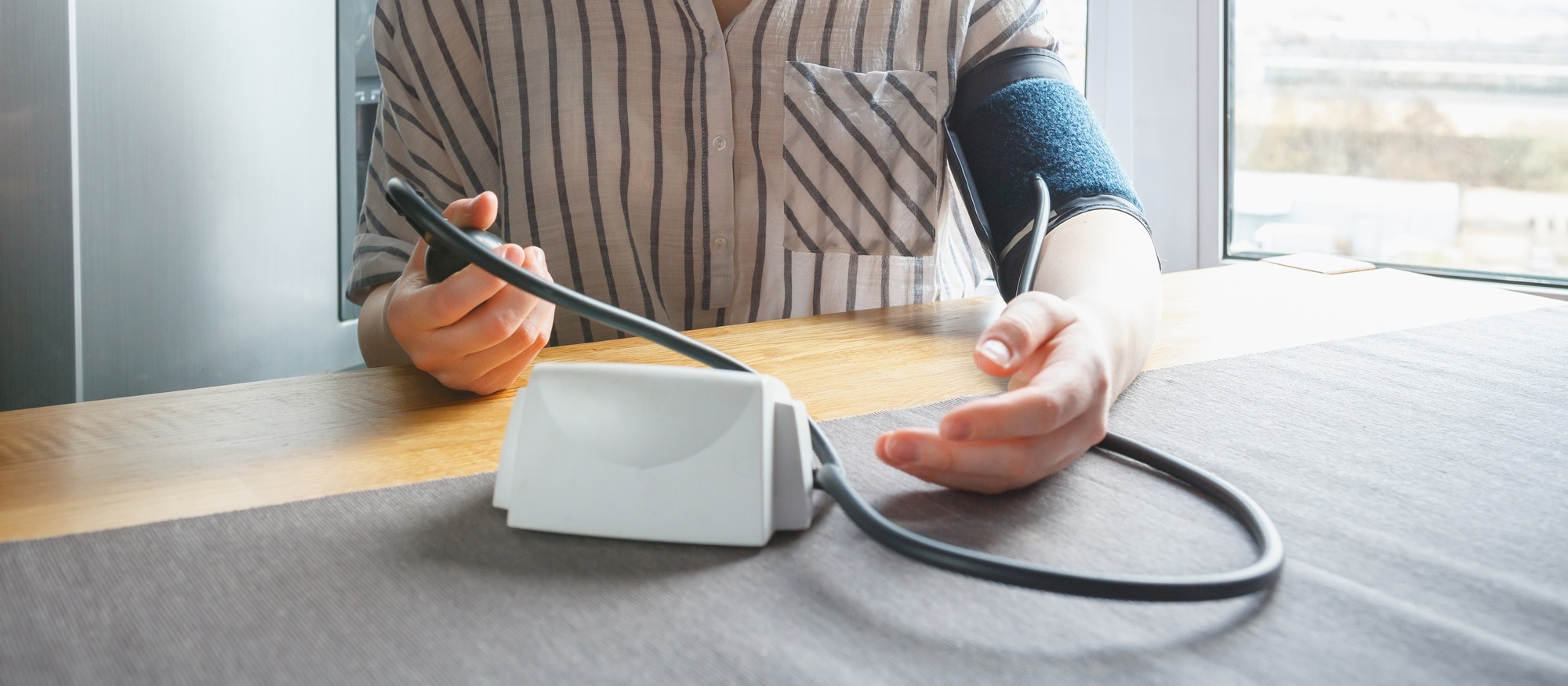By Jisha Thomas, PharmD
Introduction
Obesity rates are at an all-time high at 42.4%, according to the latest CDC records from 2017 to 2018. This number has increased dramatically from 30.5% according to the records ranging from 1999 to 2000.1 Obesity increases the risk for many health problems, such as type 2 diabetes, high blood pressure, heart disease, stroke, joint disorders, liver disease, gallstones, some types of cancer, and sleep apnea among other conditions.2 More recently, obesity has been found to have a more significant effect on Covid-related complications. The higher a patient’s BMI, the greater the risk for hospitalization, mechanical ventilation, and death due to COVID-19. In June of 2021 FDA approved a new medication for weight loss called Wegovy™. It’s the first GLP-1 agonist approved for weight loss since approving Saxenda (Liraglutide) in 2014. Wegovy is called “a game-changer” to treat obesity by both researchers and the media, including the New York Times, for its efficacy.
What is Wegovy( Semaglutide)?
Semaglutide was approved originally to enhance glycemic control in adults with type 2 diabetes (T2DM) under the brand name Ozempic. Semaglutide at a higher dose now is approved under the brand name Wegovy to assist patients with weight loss, regardless of type 2 diabetes. See Appendix 1 for the evolution of Semaglutide.
Wegovy (Semaglutide) is a glucagon-like peptide (GLP-1) receptor agonist made by Novo Nordisk. It is indicated with a reduced-calorie diet and increased physical activity for adult chronic weight management. Wegovy is recommended for adults with body mass index ≥ 30, or ≥ 27 in the presence of at least 1 weight-related comorbid condition such as hypertension, type 2 diabetes, or dyslipidemia. 4
Dosing information for Wegovy
Patients must administer Wegovy once weekly on the same day each week, at any time of day, with or without meals. Wegovy is administered subcutaneously in the abdomen, thigh, or upper arm. Recommended initial dosing for Wegovy is 0.25mg once weekly and then follows the dose escalation schedule in Table 1.
[wptb id=3856]
How Wegovy works for weight loss
Wegovy mimics the glucagon-like peptide -1 (GLP-1) hormone in the body that targets areas in the brain that regulate appetite and food control. Wegovy causes reduced appetite and hunger, and an increased feeling of fullness after eating. This medication can help patients eat less, leading to weight loss.4
The efficacy of Wegovy
The landmark STEP 1 trial was a multi-center randomized, double-blind placebo trial with 1961 participants. The study was conducted by the manufacturer Novo Nordisk. The study enrolled adults with a BMI ﹥30 or ﹥27 with a comorbid condition. All patients with diabetes were excluded from the study. The results indicated an average weight loss of 14.9% compared with a 2.4 reduction for the placebo group, and one-third of the patients had 20% weight loss, this means someone who weighed 250 pounds at the beginning was down to 200 pounds at the end. All participants in the treatment group and the placebo group did lifestyle modification for weight loss. See the chart below with the results.
Several other STEP trials are being conducted for Semaglutide. Please see appendix 2 below for a quick summary.5
Some risks of Wegovy
The most common side effects are GI side effects such as nausea (44%), vomiting (24%), and diarrhea (30%). The GI side effects are likely to be mild to moderate and typically transient, and go down the further one is from the day of the injection. Dose escalations can help mitigate some of the GI side effects. In the STEP 1 trial, 7% of the Wegovy participants discontinued treatment due to side effects vs. 3.1% in the placebo group.
Wegovy has a black box warning for people with a personal or family history of Medullary Thyroid Carcinoma (MTC) or if you have an endocrine system condition called Multiple Endocrine Neoplasia syndrome type 2 (MEN2). “In rodents, semaglutide causes dose-dependent and treatment-duration-dependent thyroid C-cell tumors at clinically relevant exposures. It is unknown whether Wegovy causes thyroid C-cell tumors, including medullary thyroid carcinoma (MTC), in humans as the human relevance of semaglutide-induced rodent thyroid C-cell tumors has not been determined.” 4
Wegovy may cause fetal harm, so patients must discontinue Wegovy if pregnancy is recognized. GLP agonist effects of lowering blood sugar shut off if blood glucose is normal. However, hypoglycemia can occur if patients are also taking insulin secretagogue or insulin simultaneously. Dose adjustments may be necessary for the insulin secretagogue or insulin. Wegovy has not been studied in patients with a history of pancreatitis. However, acute pancreatitis has occurred in clinical trials. Patients need to discontinue use promptly if pancreatitis is suspected. Do not restart if pancreatitis is confirmed. Acute gallbladder disease has also occurred in clinical trials. Clinical follow-up is recommended for patients with suspected cholelithiasis. Further warnings for Wegovy include diabetic retinopathy, acute kidney injury, increased heart rate, and suicidal thoughts/behavior. Monitor renal function initially and at dose escalations in patients reporting severe gastrointestinal reactions.4 Wegovy can cause delayed gastric emptying which may impact the absorption of other oral medications that are given along with Wegovy.
Cost of Wegovy
The average out-of-pocket price for one month’s supply of Wegovy is $1,967.73. It can be a few hundred dollars less expensive with the GoodRx application, or free if patients qualify for a manufacturer’s coupon. In general, Medicare prescription drug plans (Part D) do not cover this drug. Be sure patients contact their specific plan to verify coverage information.6 See the table below to compare the prices of anti-obesity medications.
[wptb id=3868]
Monitoring patients with obesity to avoid ADEs and improve adherence
Obesity typically does not exist in isolation. Often other conditions like diabetes, hypertension, and metabolic syndrome are concomitant with obesity, and can get better with weight loss. But, do you as a physician or advanced practice professional know which medications will interact poorly with the addition of Wegovy? This takes time to address during a busy workday. How can you increase the rate of compliance?
Having a chronic care management service in place provides the primary care practitioner a trusted partner who has the time to check for interactions and adherence. When the CCM is provided by a PharmD, physicians can benefit from the PharmD’s medication expertise to suggest alternative treatments with fewer side effects, provide reminders, and help manage the 17+ prescriptions each American takes annually12 according to 2018 information.
Conclusion
Wegovy has been found to help patients lose weight in conjunction with appropriate lifestyle modification. The results for Wegovy far exceed what we have seen from other anti-obesity medications thus far. Currently, approved anti-obesity drugs require administration once, twice, or three times daily dosing versus a once-weekly regimen for Wegovy. However, something to consider is the high cost of the medication. Wegovy is also only available as an injectable.
Wegovy may help avoid invasive surgical options for some patients by providing them with an alternative way to lose weight. When it comes to weight loss, lifestyle modification and behavior modification are very important. Wegovy may be beneficial in giving some obese patients a jump start to create healthy habits that can lead to weight loss success.
Clinical pharmacists at PharmD Live can help your patients with obesity by managing their weight loss medications–from dose escalations to side effect management. In their roles as care coordinators, our pharmacists create a care plan with your patient that includes personal health goals. One strategy is to set small yet achievable nutritional goals such as using the plate method for portion control and increasing vegetable portions. A similar strategy can be used for exercise, such as incorporating weight-bearing exercises and slowly increasing exercise tolerance.
Our clinical pharmacist assesses compliance to the patient’s personal health goals which provides them with the accountability and motivation to achieve weight loss success. These small lifestyle modifications goals have the potential to have a big payoff over the long term.
Appendix 1
[wptb id=3869]
Appendix 2
[wptb id=3867]
About the author
Jisha Thomas, PharmD, graduated from University of Iowa college of pharmacy in 2005 and has offered patient specialty care in a variety of settings. She has experience in Oncology and Hepatology. Dr. Thomas is committed to building positive relationships with patients and health care providers.
References
- https://www.cdc.gov/obesity/data/adult.html
- https://www.niddk.nih.gov/health-information/health-statistics/overweight-obesity
- Kompaniyets L, Goodman AB, Belay B, et al. Body mass index and risk for COVID-19–related hospitalization, intensive care unit admission, invasive mechanical ventilation, and death – United States, March-December 2020. MMWR Morb Mortal Wkly Rep. 2021;70(10):355-361.
- https://www.novo-pi.com/wegovy.pdf
- https://diabetes.medicinematters.com/semaglutide/obesity/quick-guide-step-trials/18854832
- https://www.goodrx.com/wegovy/medicare-coverage
- Davies M, Færch L, Jeppesen OK, Pakseresht A, Pedersen SD, Perreault L, Rosenstock J, Shimomura I, Viljoen A, Wadden TA, Lingvay I; STEP 2 Study Group. Semaglutide 2·4 mg once a week in adults with overweight or obesity, and type 2 diabetes (STEP 2): a randomised, double-blind, double-dummy, placebo-controlled, phase 3 trial. Lancet. 2021 Mar 13;397(10278):971-984. doi: 10.1016/S0140-6736(21)00213-0. Epub 2021 Mar 2. PMID: 33667417.
- Rubino D, Abrahamsson N, Davies M, et al. Effect of Continued Weekly Subcutaneous Semaglutide vs Placebo on Weight Loss Maintenance in Adults With Overweight or Obesity: The STEP 4 Randomized Clinical Trial. JAMA. 2021;325(14):1414–1425. doi:10.1001/jama.2021.3224
- Donna H. Ryan, Ildiko Lingvay, Helen M. Colhoun, John Deanfield, Scott S. Emerson, Steven E. Kahn, Robert F. Kushner, Steve Marso, Jorge Plutzky, Kirstine Brown-Frandsen, Marianne O.L. Gronning, G. Kees Hovingh, Anders Gaarsdal Holst, Henrik Ravn, A. Michael Lincoff,Semaglutide Effects on Cardiovascular Outcomes in People With Overweight or Obesity (SELECT) rationale and design,American Heart Journal,Volume 229,2020,Pages 61-69
- Wilding JPH, Batterham RL, Calanna S, Davies M, Van Gaal LF, Lingvay I, McGowan BM, Rosenstock J, Tran MTD, Wadden TA, Wharton S, Yokote K, Zeuthen N, Kushner RF; STEP 1 Study Group. Once-Weekly Semaglutide in Adults with Overweight or Obesity. N Engl J Med. 2021 Mar 18;384(11):989. doi: 10.1056/NEJMoa2032183. Epub 2021 Feb 10. PMID: 33567185.
- https://www.mayoclinic.org/diseases-conditions/type-2-diabetes/expert-answers/byetta/faq-20057955
- US Prescriptions Hit New High in 2018, but Opioid Scripts Dip, https://www.medscape.com/viewarticle/912864








